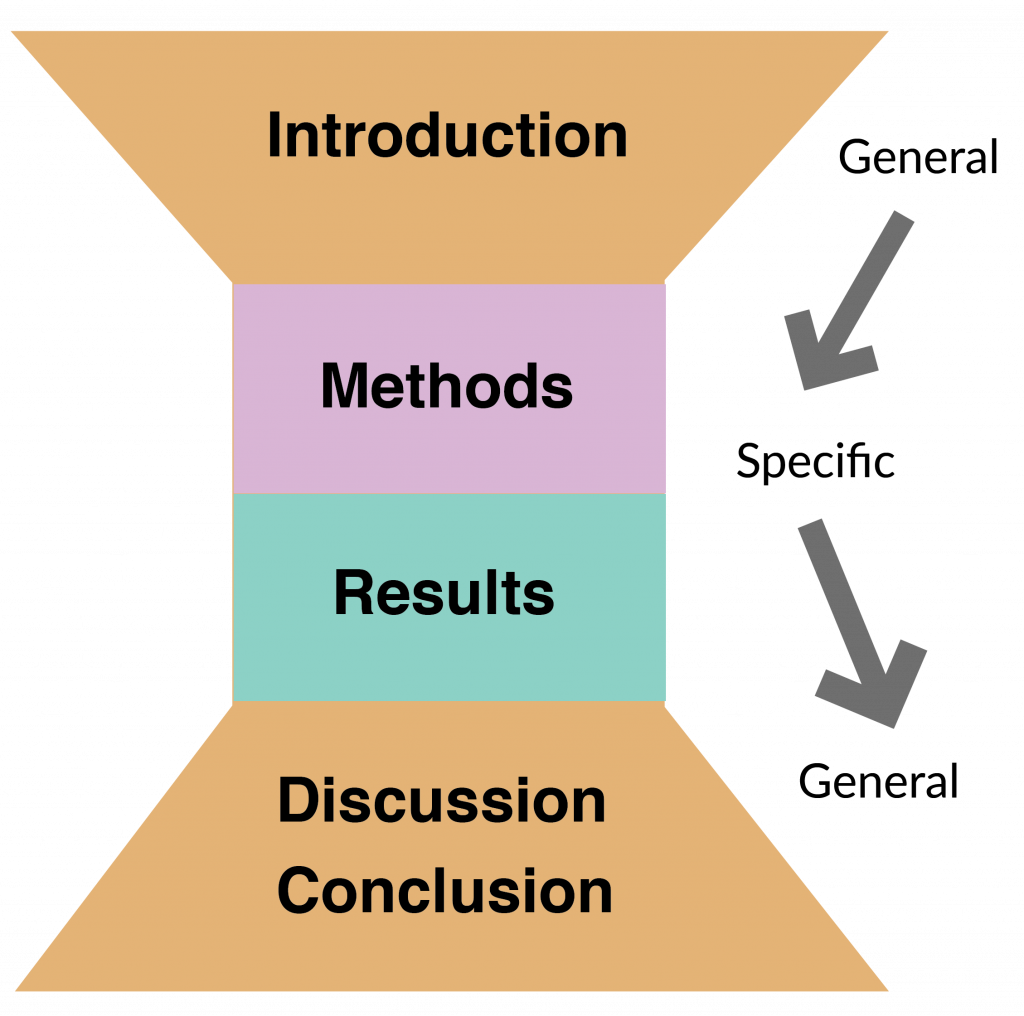Chapter 6: Discussion/Conclusion Section(s)
Conceptualizing the Research Article
You may remember from Chapters 3-5 that research articles have specific sections regardless of discipline or journal. Generally, there are five commonly acknowledged sections of an empirical research manuscript: Introduction (including the Literature Review), Methods, Results, Discussion/Conclusion.
Notice that the figure depicts an article in the shape of an hourglass. That shape provides a way for us to consider which sections of a research article will be general and which will be specific. The final part — the Discussion/Conclusion — is one of the most general or broad parts of the entire article. You started out from a broad/general perspective, then as you moved toward the middle of your research manuscript, your content became more and more specific, reaching its most specific point in the Methods and Results section. In this chapter, we will present the goals and strategies for writing the Discussion/Conclusion.
 Warm-Up
Warm-Up
Why do you think the Discussion/Conclusion section needs to be more general than Methods and Results, which are more narrow/specific. What aspects of the Discussion/Conclusion contribute to its generality?

